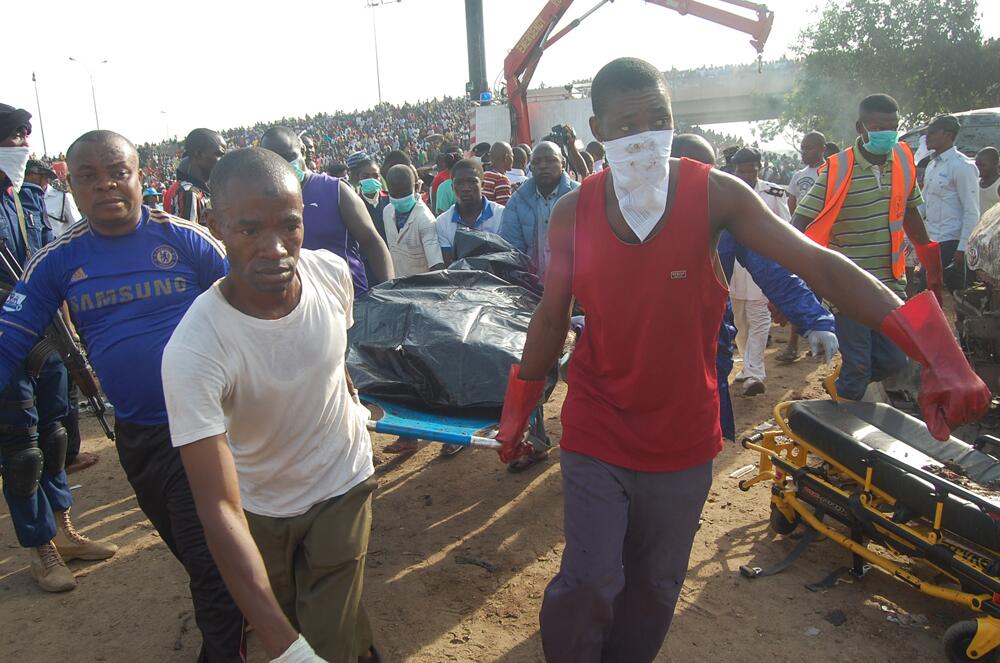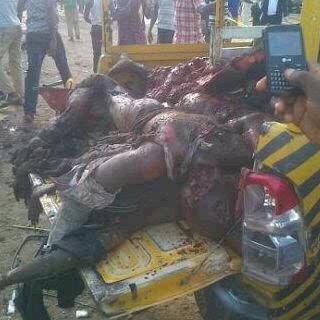
A massive explosion ripped through a bus station during the morning rush hour in Nigeria's capital, killing at least 71 people and wounding 124 in a bombing that marked the bloodiest terrorist attack ever in Abuja.
The blast destroyed 16 luxury buses and 24 minibuses and cars, said police spokesman Frank Mba, who gave the death toll.





Survivors screamed in anguish and the stench of burning fuel and flesh hung over the site where billows of black smoke rose as firefighters worked to put out the fires. Reporters saw rescue workers and police gathering body parts as ambulances rushed the wounded to the hospitals. State television has broadcast calls for blood donations.

Security personnel battled to belatedly cordon off the area as a bomb detonation team was combing it for secondary explosives, a common occurrence here. Thousands of bystanders gathered, ignoring warnings to stay away. While violence has torn the northeast where Boko Haram has killed thousands, the capital in the middle of Africa's most populous country has been relatively peaceful.

Two notable exceptions occurred when Boko Haram members rammed two explosives-laden cars into the lobby of the United Nations office building in 2011, killing at least 21 people and wounded 60 and when militants from the southern oil-producing Niger Delta in October 2010 exploded two car bombs at Independence Day celebration, leaving at least 12 people dead and 17 injured. The Movement for the Emancipation of the Niger Delta which carried out that attack has been largely dormant since then, except for some sabotage of oil pipelines.





No comments:
Post a Comment